In 1991the California Legislature passed the Elder Abuse Act to address the needs of the elderly and their loved ones who are facing including abuse, neglect and abandonment. Lawyers were encouraged to become advocates of this class of Californians. The Act included enhanced remedies for successful claimants, including attorney’s fees and costs, and even post-mortem general damages in cases of death when certain burdens of proof are met.
The Elder Abuse Act holds the defendant liable, given clear and convincing evidence of abuse and/or neglect and that the defendant acted in a reckless, oppressive or malicious manner. Most people could easily spot the abuse of an elder who is assaulted or battered – physical abuse – or who has had their life savings stolen by a family member – financial abuse – many viable cases of elder abuse under the Act are not so apparent and are missed, usually because they appear to be single acts of negligence, and not overt acts of abuse.
Negligence is defined as “the negligent failure of any person having the care or custody of an elder or dependent adult to exercise that degree of care that a reasonable person in a like position would exercise” and includes failure to provide medical care for physical and mental health needs, failure to protect from health and safety hazards, and the failure to prevent malnutrition and dehydration. Some examples of neglect include:
- Bed Sores & Infections
- Falls
- Fractures
- Left To Wander
- Sudden or Unexpected Weight Loss
- Dehydration
- Inadequate Supervision
- Peer Abuse
- Feeding Tube Failures
- Bed Rail Injuries
- Poor Personal Hygiene
When evaluating the treatment of a loved one, elderly person or a dependent adult in a nursing home or care facility, it’s important to investigate all issues that might suggest a pattern of neglect instead of what might appear to be a single act of negligence. The best place to start is typically the file maintained by the facility and the written care plan required for all residents of a skilled nursing facility. Plans like this should address falls, mobility, pain management, nutrition, bladder and bowels, etc. Care plans must be updated to address a resident’s changing needs, and must be followed by all caregivers. Failure to follow the care plan can lead to serious injury or death, and can be the basis of an elder neglect lawsuit.
Cases involving facilities that don’t provide “skilled” nursing care, including residential care facilities or assisted living facilities may not be required to maintain such a care plan. The day-to-day care provided by a licensed facility is highly regulated by the State of California and provides a solid foundation to build a case under the Act. Skilled nursing facilities are evaluated yearly by the California Department of Public Health. A case can take on new significance if you discover there have been several other reported falls in the previous year.
Who Has Standing To Sue For Elder Abuse? If the elder or dependent adult does not die as a result of the misconduct then the injured person is the one who can sue on his or her own behalf. If the injured party dies as a result of the abuse the court does not lose jurisdiction for claims made under the Act. After a petition, the right to maintain the action after death (the survival action) can be transferred to a personal representative of the decedent or to the decedent’s successor in interest. The person who died can maintain a legal action as though they were still alive and this is a unique aspect of the Elder Abuse Act.
Additionally the death of an elder or dependent adult not only may continue after death in the decedent’s name, but it also gives rise to a wrongful death action for the eligible surviving heirs. In effect, two cases arise after the death: the decedent’s personal case, as well as a wrongful death case for the survivors. These differences are major and as a result the survival action looks at the decedent’s injuries and becomes an asset of the decedent’s estate, while the wrongful death action is meant to compensate the heirs for their own losses.
If you or a loved one has been the victim of nursing home abuse or neglect please call the Law office of Guenard & Bozarth at 888-809-1075. We have the experience and experts you need to prove your case and get the compensation your family deserves. You can also visit https://gblegal.com/elder.php Call us… We Can Help!

